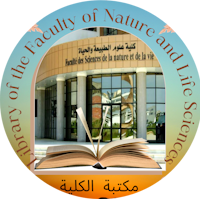|
RÃĐsumÃĐ :
|
pear (Pyrus communis) fruit is among the fruits rich in antioxidants witch reduce the risk of diseases related to oxidative stress. The aim of this study aimed to evaluate the antioxidant activity of the ethanolic extract of Pyrus communis, and its protective effect in the liver mice treated with CCl4. Antioxidant activity was assessed by measuring MDA, GSH, and enzyme activity of catalase in liver. DPPH radical scavenging and reducing power were determined in plasma. The results showed that oral administration of pear extract in two doses of 200 and 600 mg/kg for 7 days had a good antioxidant effect in the liver by decreasing in MDA levels (15,37 Âą 2,88 and 10,29Âą 1,67nmol/g tissue) compared to the CCl4 as negative control (126,2Âą 17,90 nmol/g tissue). The same doses significantly increased GSH levels ( 9,03Âą 0,44 and 9,84 Âą 0,86nmol/g of tissue) compared with control group (6,66 Âą 0,12 nmol/g) and catalase activity (63,40 Âą 5,77 and 266,0Âą26,98 U/g tissue) compared with CCl4 ( 32,30 Âą 15,52U/g tissue). However, pear exhibited high antioxidant activity as assessed by the DPPH radical scavenging method( 34,46 Âą2,42 and 42,88 Âą2,73 % ) compared to the CCl4 group (23,52 Âą 1,77%) and gave a significantly elevated reducing capacity (0,55Âą0,02 and 0,56Âą0,05) in plasma compared with the control ( 0,34 Âą0,02 ). These results indicated the importance of fruits in healthy life and its effective therapeutic effect in protection against oxidative stress.
|


